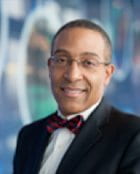 I am honored to be able to share a poem by Family Medicine R3 Dr. Joseph Nelson, which was recently published in the Family Medicine Journal and presented at GMEC. I thought that this poem was so impactful, that it should be published in this 2nd blog post for the month of February.
I am honored to be able to share a poem by Family Medicine R3 Dr. Joseph Nelson, which was recently published in the Family Medicine Journal and presented at GMEC. I thought that this poem was so impactful, that it should be published in this 2nd blog post for the month of February.
Byron Joyner, MD, MPA
Vice Dean for GME and DIO
 Residents and trainees often encounter language or behaviors that may display indifference or may even feel hostile. Language and actions that perpetuate negative stereotypes that lack empathy or express bias against marginalized groups of people is not unexpected in a workforce that has historically lacked diversity. But, these types of words and actions are still hurtful. The following poem was written in response to statements and actions made to me by medical professionals during a week-long teaching conference I attended.
Residents and trainees often encounter language or behaviors that may display indifference or may even feel hostile. Language and actions that perpetuate negative stereotypes that lack empathy or express bias against marginalized groups of people is not unexpected in a workforce that has historically lacked diversity. But, these types of words and actions are still hurtful. The following poem was written in response to statements and actions made to me by medical professionals during a week-long teaching conference I attended.
Joseph Nelson, MD
Reflection
Joseph Nelson, MD
Family Medicine R3
It was the water that calmed him, this Native American man. The soothing clatter against nearby rock, the rhythm and dance of current, and the crystal clearness which revealed a mysterious world unseen by many.
It was a doctor who asked him earlier, “can’t we do a fish dance?” a reference as clear as the water before him.
It was a doctor who mentioned the “Redskins” of football fame as they spoke to him and his skin of red.
It was a doctor that taught him how an infant sits “Indian-style” as it passes breech from its mother’s womb.
It was a doctor who jokingly named a child “Sleeps-with-snakes,” a parody of an honor he was yet to receive.
It was a doctor who shared an imaginary case about an IHS patient who was, of course, high, a stereotype too often made.
It was a doctor who shared the same story months ago, also in teaching, but this time very clearly an “Indian” and very bluntly “drunk.”
It was a doctor who mockingly imitated a Chilean woman in jest, cursing through her labor.
It was a doctor who mentioned “scalping,” while placing a vacuum extractor on an infant model. And it was a doctor who smiled for a photo, proudly raising the same dark-skinned model by a cord up high, as it dangled lifeless and still, as if lynched by his white hand.
No matter how brief or subjective in view, it was doctors who said and did these things, even while teaching. And it was a doctor resting at the water’s edge, calmed in the presence of his ancestral land, as these acts of racism faded only in spoken word.
It is important that we recognize the power of our words and actions, and the potential for harm, even if harm was never intended.
Source:
Nelson J. Reflection. Fam Med. 2022;54(2):142-142. https://doi.org/10.22454/FamMed.2022.882975
Copyright Society of Teachers of Family Medicine. Used by permission.
